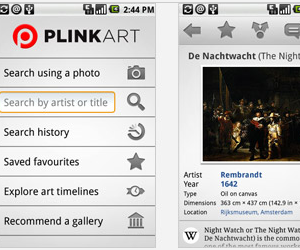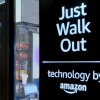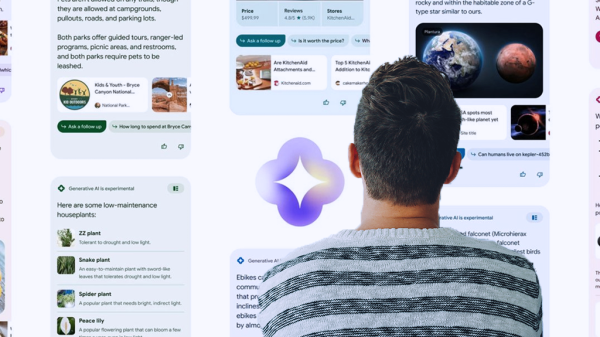Google makes a smart acquisition
 Today, Google announced they have acquired visual search mobile application, Plink, “the visual search engine for art.”
Today, Google announced they have acquired visual search mobile application, Plink, “the visual search engine for art.”
The Plink team noted in their blog that they “won’t be updating the app and will instead focus our development efforts on Google Goggles, so you’ll see new functionality appearing there in the future.” We’ve talked about Google Goggles before and their impact on the real estate industry and this acquisition massively enhances the Goggles offering.
Here’s how Plink works:
What this means for real estate
The implications of this are pretty huge- right now you can hold a phone up to a piece of art and get information on the history of the piece, the artist, the time period in which it was produced as well as related art pieces.
A visual art search just bought by Google unlikely is considering the real estate angle of this, but this feature added to Google Goggles is big, given that Goggles is kind of like a hybrid of AR + QR for dummies (augmented reality plus qr codes).
Because it’s at the center of emerging technologies and it’s backed by Google, it’s bound to see a higher adoption rate than many of the surrounding projects.
Imagine going on a tour with a client and their snapping a shot of the subdivision entry and getting all of the pertinent information that you can’t give them directly – sex offender addresses, crime rates, school ratings or anything else subjective that Fair Housing prohibits you from getting involved in discussing.
Or imagine being inside a home and a client snapping a shot of the brand new kitchen that the builder has all data on, and their being able to visually search what wood the cabinets are made from, if it’s granite or laminate counters and whether or not you can put hot pans on the surface, what kind of dishwasher has been installed and what user reviews of it are (and how long a cycle lasts or how long it is).
The takeaway
Visual search isn’t going away, we’ve been talking about it for years, and the technology is (finally) rapidly accelerating. This is no threat to the real estate industry, it’s a life saver for all of those tiny questions you don’t know the answers to (what is the Energy Star rating of this fridge model?) or can’t opine about (is this a safe neighborhood?).
It’s a supplement to the home shopping experience, not a replacement. We’re in an era of consumer empowerment- they do their own research on you, the neighborhood, building materials, etc. Ultimately, people need their hands held when they sign on the dotted line, and tools like these can make it much more exciting.
Lani is the COO and News Director at The American Genius, has co-authored a book, co-founded BASHH, Austin Digital Jobs, Remote Digital Jobs, and is a seasoned business writer and editorialist with a penchant for the irreverent.













































Matt Stigliano
April 13, 2010 at 10:18 am
@LaniAR – You know I love this stuff. I spent hours playing with a friend’s phone and Google Goggles after your first piece about it. I know technology keeps advancing, but this stuff blew me away.
Someone should build this. It would avoid the “Fair Housing dance” over sex offenders, crime, and schools. I can only imagine how an app like that could be expanded too – WalkScore, Yelp reviews, current market data – the possibilities are endless. Giving the consumer the info they need to make sound decisions combined with the agent’s own local knowledge of what’s going on outside of the internet equals some pretty powerful information in the hands of the buyer.
Of course, as with all great ideas in real estate, the information is as only as good as the data it comes from. I can see potential for bad things too. No subdivision wants to get the bad rating, so they manipulate the data to their own ends. The sad thing is that these sorts of problems tend to only cause more problems. I can imagine someone fighting it on Fair Housing grounds and winning and then we’re back to the Stone Age again with no data available.